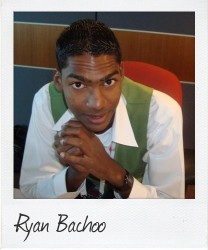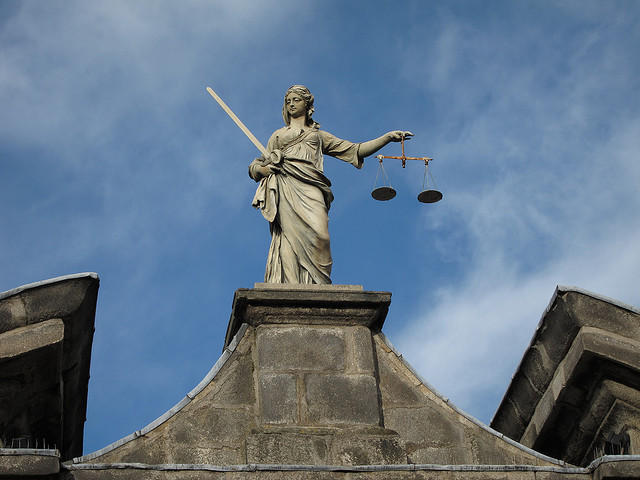"Politicians can alter history on a daily basis"
April 21st, 2014 History judges world leaders, and will assess the legacy of the late president ANR Robinson, writes Ryan Bachoo, 24, a Commonwealth Correspondent from Trinidad and Tobago, as he recounts the successes and challenges of a man who shaped the country.
History judges world leaders, and will assess the legacy of the late president ANR Robinson, writes Ryan Bachoo, 24, a Commonwealth Correspondent from Trinidad and Tobago, as he recounts the successes and challenges of a man who shaped the country.
April has historically been a quite turbulent month in international politics. Within the space of ten days, between April 20th – April 30th, is the anniversary of Adolf Hitler’s birth and suicide.
Earlier in the month, on April 4th, Martin Luther King is assassinated in Memphis, President Franklin Roosevelt dies on the 12th and Thomas Jefferson is born the day after. All fragmented many years apart, of course. Recently, the death of former President and Prime Minister of Trinidad & Tobago, ANR Robinson on the 9th added to the history of this undesirable month.
Above are names of men who have left their mark on the world even many years after their deaths, and I suspect it will be the same with Robinson. Hitler is still a household name 69 years after he took his own life. The common thread though is that they all had their chance to leave a legacy, as is the case with every human being. So what is Hitler’s legacy? Perhaps it was to create a superior Aryan race of blonde haired boys with strong bodies and physiques – a description Hitler himself failed to portray. He wanted Germany to rule the world with him as the leader. Now 69 years on, after his death, neo-Nazism is a very real thing. Hitler’s anti-Semitism has been passed down decade by decade and those wearing the swastika genuinely believe that the Jews were responsible for huge events like Germany losing World War I and the economic crisis.
And much like Hitler, many other leaders have left legacies of their own. It is all well to say that leaders like Hitler, Stalin, Lenin, and Trotsky, altered the course of history in their respective ways. However, politicians alter the course of history on a daily basis, and perhaps with every decision they make. ANR Robinson was a man faced with many decisions during his lifetime, from choosing between political parties of a deadlocked general election to pouring every drop of his energy into support for an International Criminal Court. The decision that defined him though was the morning of July 27th when the Jamaat al Muslimeen, led by their leader Yasin Abu Bakr, attempted a coup on the Trinidad and Tobago government.
Held at gun point, and with the fate of the country in his hands, Robinson echoed these timeless words to the nation, “Attack with full force!” After six days of negotiation, the Muslimeen surrendered on August 1st and were taken into custody. They were tried for treason, but the Court of Appeal upheld the amnesty offered to secure their surrender, and they were released. What the attempted coup did more than anything was paper over the cracks of Trinidad and Tobago’s problems. People were aware of them before, but the attempted coup put them in the shadows of the country’s woes.
Upon Robinson’s death, there were obviously many tributes and reflections on his life. One that stood out for me was from former St Kitts Governor, Sir Probyn Inniss, who simply said, “History will judge.” But history started judging Robinson many years ago. When he became President of Trinidad & Tobago in 1997, there was still a lot of glamour geared towards him, not to mention controversies. It all started with his relationship with Prime Minister Basdeo Panday. People questioned it. Four years later, the country would again focus on him as he was called upon to choose between the United National Congress party and the People’s National Movement after the general election ended in an 18-18 deadlock. He chose the latter.
Robinson was indeed brilliant, courageous and all the other great things people have been saying about him since he died. But history has judged Robinson already, and will continue to do so with every step Trinidad & Tobago takes forward or backward, because the foundation on which the nation lies was built during his period of leadership. The attempted coup papered over many cracks, but the wounds of life before it are still too much for people to forget. Greed for oil, monopolising pitch lake profits, broadcast media monopoly, a 15 per cent VAT at a time of great prosperity. No one truly knows why the Jamaat al Muslimeen stormed the House of Parliament on that Friday morning, but perhaps it woke up a government drunk at the wheel.
Like every other politician though, whether we’re talking about Hitler, Mussolini or Obama, Robinson did good and he did bad. The latter is what history judges on.
photo credit: sparkle-motion via photopin cc
………………………………………………………………………………………………………………
About me:
“Hi, my name is Ryan Bachoo. I’m a Journalist and Public Relations Practitioner from Princes Town in the twin island of Trinidad and Tobago. I’ve moved into the field of Mass Communication now. I currently work for the West Indies Cricket Board, protecting the online image of West Indies Cricket.
I’ve been a Broadcast Journalist at Cable News Channel 3 for three years. For the Commonwealth Youth Secretariat, I write on topics of politics, war and economics.”
Ryan Bachoo
Journalist & Public Relations Practitioner
The People’s Writer
I speak for those who have no voice!
…………………………………………………………………………………………………………………
Opinions expressed in this article are those of the author and do not necessarily represent the views of the Commonwealth Youth Programme. Articles are published in a spirit of dialogue, respect and understanding. If you disagree, why not submit a response?
To learn more about becoming a Commonwealth Correspondent please visit: http://www.yourcommonwealth.org/submit-articles/commonwealthcorrespondents/
…………………………………………………………………………………………………………………




